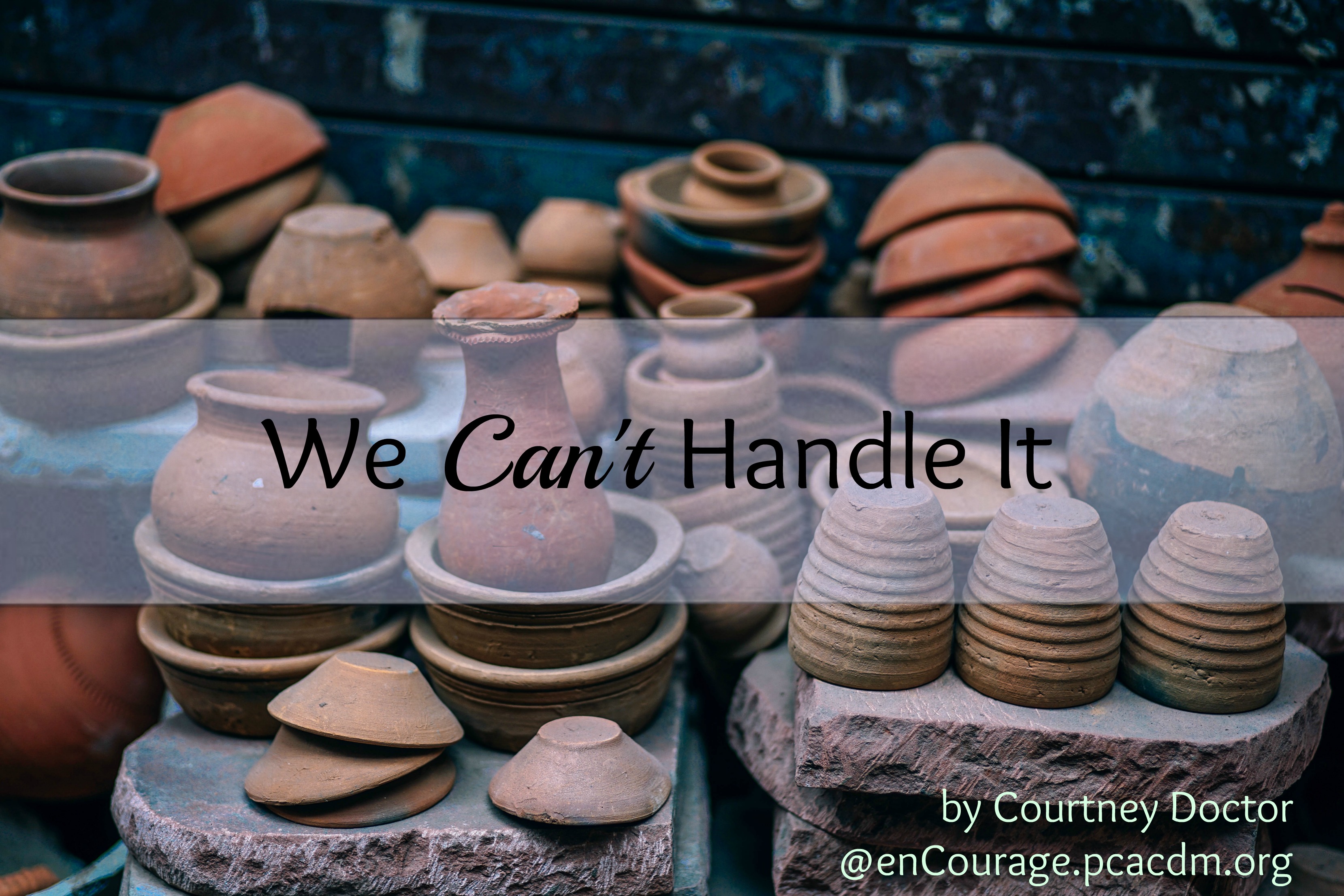COURTNEY DOCTOR|CONTRIBUTOR
A good friend posted on Facebook recently about the challenges she has been experiencing as her basement is being remodeled: the flooring didn’t come in time, the paint was the wrong color, and the cabinet was installed incorrectly. In the comments section, there were funny comments, sage advice, and the all-too-frequent “encouragement” of “Hang in there, God will never give you more than you can handle.”
Another friend of mine has gone through the profound sorrow of several miscarriages. In her small group at Bible study, she has been prayed for, hugged often, and “encouraged” with the words, “Remember, God will never give you more than you can handle.”
A third friend of mine is in the midst of deep depression, loneliness, and overwhelming circumstances. As she shared her concerns with a group of friends, we cried with her, prayed with her, and she was offered the “encouragement” of “I hope you know that God will never give you more than you can handle.”
We Can’t Handle It
We’ve all heard it. For goodness sake, we’ve probably all said it. I have. But where in the world (or the Word) do we come up with the idea that God is in the business of doling out circumstances according to what we will be able to handle? As if he looks around and says, “Well, she is strong enough to handle a rebellious child, so I think that is what I will give her. And he is strong enough to handle unemployment, so that is what I will give.”
God does not allow the suffering and trials that come our way based on what he thinks we can handle. Who among us can “handle” the death of a child? Who among us can “handle” an unfaithful spouse? Who among us can “handle” much of the suffering that permeates our broken world? None of us!
I have no doubt that most of us want to offer words of deep encouragement to our friends when they are suffering. But this well-meaning piece of advice is greatly flawed and utterly fails to offer the help and hope we are trying to extend. It gives us an inaccurate view of our suffering, ourselves, and, most importantly, of God.
An Inaccurate View of Suffering
We live in a broken world and, as a result, experience suffering of all shapes and sizes. Jesus was very clear when he said, “In the world you will have tribulation” (John 16:33, emphasis mine). The reasons for suffering are mixed. We experience suffering simply because the world is broken. There are some trials that come our way that are a direct result of our sin. And there are other trials we bear as a result of someone else’s sin. We are people living in a broken world who have both sinned and been sinned against—and suffering results from all of these.
But we don’t suffer because God has looked around and decided that we can handle it or that we are strong enough. In fact, it’s quite the opposite. Paul calls us “jars of clay”—fragile, frail, brittle, and breakable. But Paul doesn’t end with declaring our weakness; he goes on to say our frailty actually points us to God’s strength. “We have this treasure in jars of clay, to show that the surpassing power belongs to God and not to us” (2 Cor 4:7). We are not the strong ones, God is—and suffering should not point us to our strength, but to God’s.
An Inaccurate View of Ourselves
That is the main error of this particular piece of advice—it switches the focus from God to me. If I am honest with myself, I enjoy believing that I can handle things, that I am strong. But that is self-deception at its best. The minute a crushing trial comes my way, it does just that—it crushes me. There are types of anguish that can literally drop me to the floor. When faced with that type of suffering, I am confronted with the fact that I am, in no way, shape, or form strong enough.
Did you sing Jesus Loves Me as a child? Do you remember the last line of the song? It says, “We are weak but he is strong.” This would be a better—and more theologically sound—encouragement to offer a friend in need. When we tell people God will never give them more than they can handle, we are ultimately saying they are stronger than they think they are. The truth of the matter is that you and I are much weaker than we like to believe. But praise be to God, he is bigger and stronger and wiser and kinder than we can ever imagine.
When suffering comes our way, we need to learn to run where David ran; “Hear my cry, O God, listen to my prayer; from the end of the earth I call to you when my heart is faint. Lead me to the rock that is higher than I” (Ps 61:1-2). God is the Rock, not us. It is not our strength that will sustain us, but his. And so, when trials and suffering come, may we offer true encouragement to both our souls and the souls of our friends—God will never give us more than he can handle.


